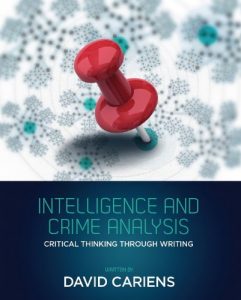This is a practical handbook that teaches the central skill underlying effective intelligence and crime analysis: the ability to render often fragmentary evidence involving complex issues into brief, clear, concise, and actionable reports. David Cariens, a career CIA analyst, has compiled the text and case studies based on his years of experience in training analysts and law enforcement officers.
David Cariens aims to help train analysts to not only write well, but to pick out the most pertinent information from a variety of sources, synthesize it, and communicate it effectively. He also discusses the need for editing, and the appropriate roles of the writer and editor in creating the best possible written product. Cariens points out that writing intelligence and crime analysis is an ethically charged endeavor that can require the writers to make difficult calls and take unpopular stands for what they believe in. He offers clear guidelines for how to handle this pressure and case studies to illustrate his points. This book provides writers with the tools they need to make their writing count.
David Cariens aims to help train analysts to not only write well, but to pick out the most pertinent information from a variety of sources, synthesize it, and communicate it effectively. He also discusses the need for editing, and the appropriate roles of the writer and editor in creating the best possible written product. Cariens points out that writing intelligence and crime analysis is an ethically charged endeavor that can require the writers to make difficult calls and take unpopular stands for what they believe in. He offers clear guidelines for how to handle this pressure and case studies to illustrate his points. This book provides writers with the tools they need to make their writing count.






